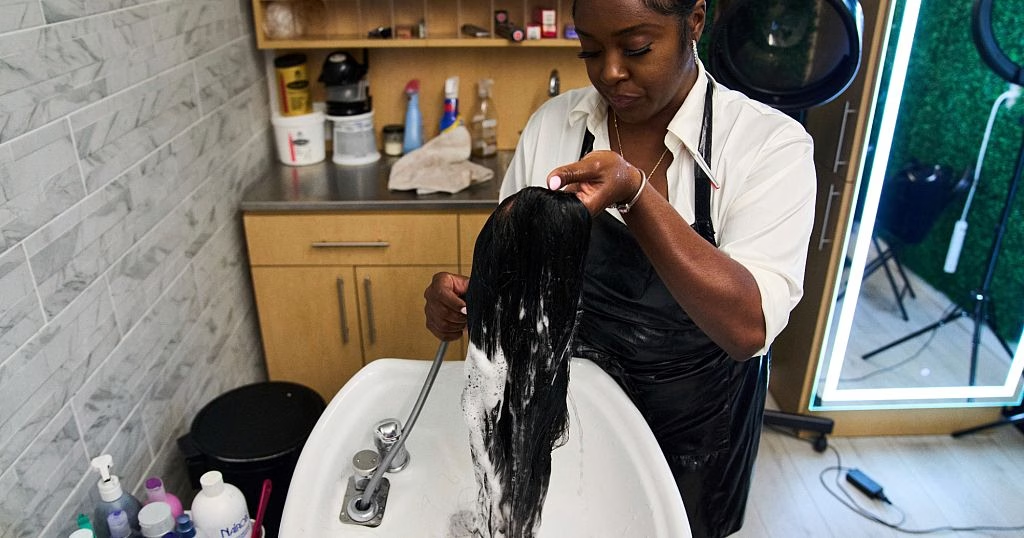The prices at salons have been increasing due to inflation and increased rents. However, the situation has become even more difficult for customers and stylists as the tariffs imposed by the Trump administration on imported goods have driven up the prices of various essential products for Black women.
Many Black women rely on synthetic braiding hair, human hair for extensions, wigs, weaves, styling tools, and braiding gel, which are often imported from or packaged in China. In April, China faced a combined 145% tariff, leading to a significant increase in costs for these products.
Several experts in the Black hair industry, beauty supply store owners, wholesale companies, as well as stylists and braiders, were interviewed by the Associated Press. They expressed concerns about the possibility of raising prices even further, as the clientele has already been affected by the tight economy.
Recently, a three-judge panel of the U.S. Court of International Trade blocked the imposition of these tariffs, and the administration plans to appeal. However, even if the tariffs are reduced from 145% to 30%, it is still much higher than the baseline tariff rates of 10% faced by other countries, according to Marty Parker, a business professor and supply chain expert.
Regardless of the trade negotiations’ outcome, Parker believes the next 100 days will be challenging for many items due to high costs at ports and supply shortages. Some stylists have noted a decline in clientele, which they believe is related to the price hikes in the black hair care industry as well as the overall rise in costs.
Stylist Yana Ellis from Atlanta paid an additional $245 in shipping for hair bundles in March compared to December, and AaNiyah Butler experienced a more than double increase in shipping costs for human hair from China between February and May.
Wholesale hair stores have also experienced cost increases or anticipate them in the coming weeks. Even synthetic hair, which used to cost as little as $6 to $10 per pack, has seen a price creep.
Dajiah Blackshear, a natural stylist from north Atlanta, recently visited a beauty supply store and found that the price of hair from China she has used for years has increased significantly. The store owner may even stop selling that brand of hair due to the price hike.
Blackshear is concerned that if hair prices and other expenses continue to rise, she may have to increase her own prices. She fears that clients may be hesitant to pay more, leading to a decline in business.
Black women often spend hundreds of dollars each month at salons on extensions, weaves, wigs, and braids. The global Black hair care industry was worth more than $2.5 billion in 2023, and Black women spend six times more on hair care than other ethnicities.
Source: http://www.africanews.com/2025/06/02/trump-administrations-tariffs-hits-black-haircare-industry-hard/







